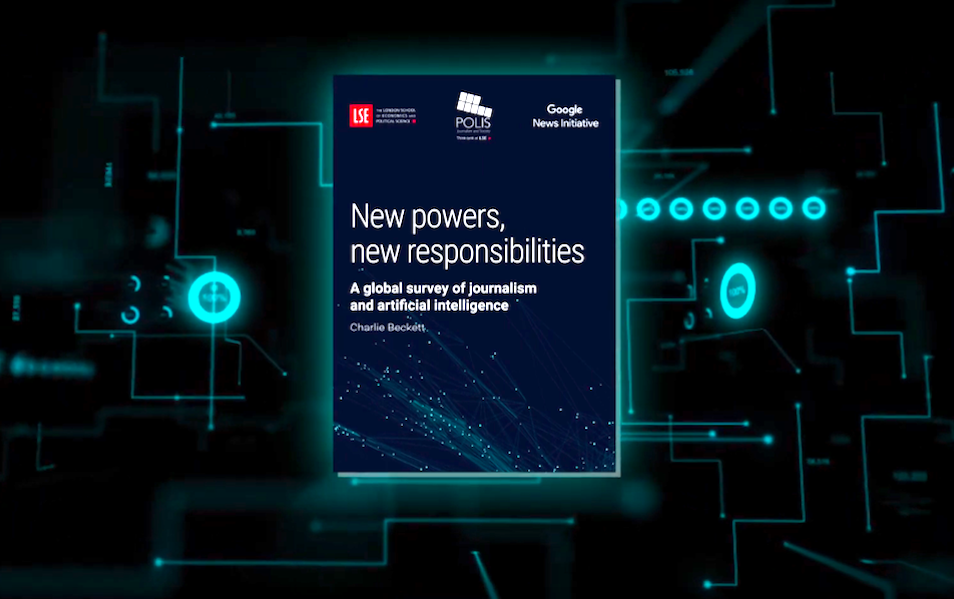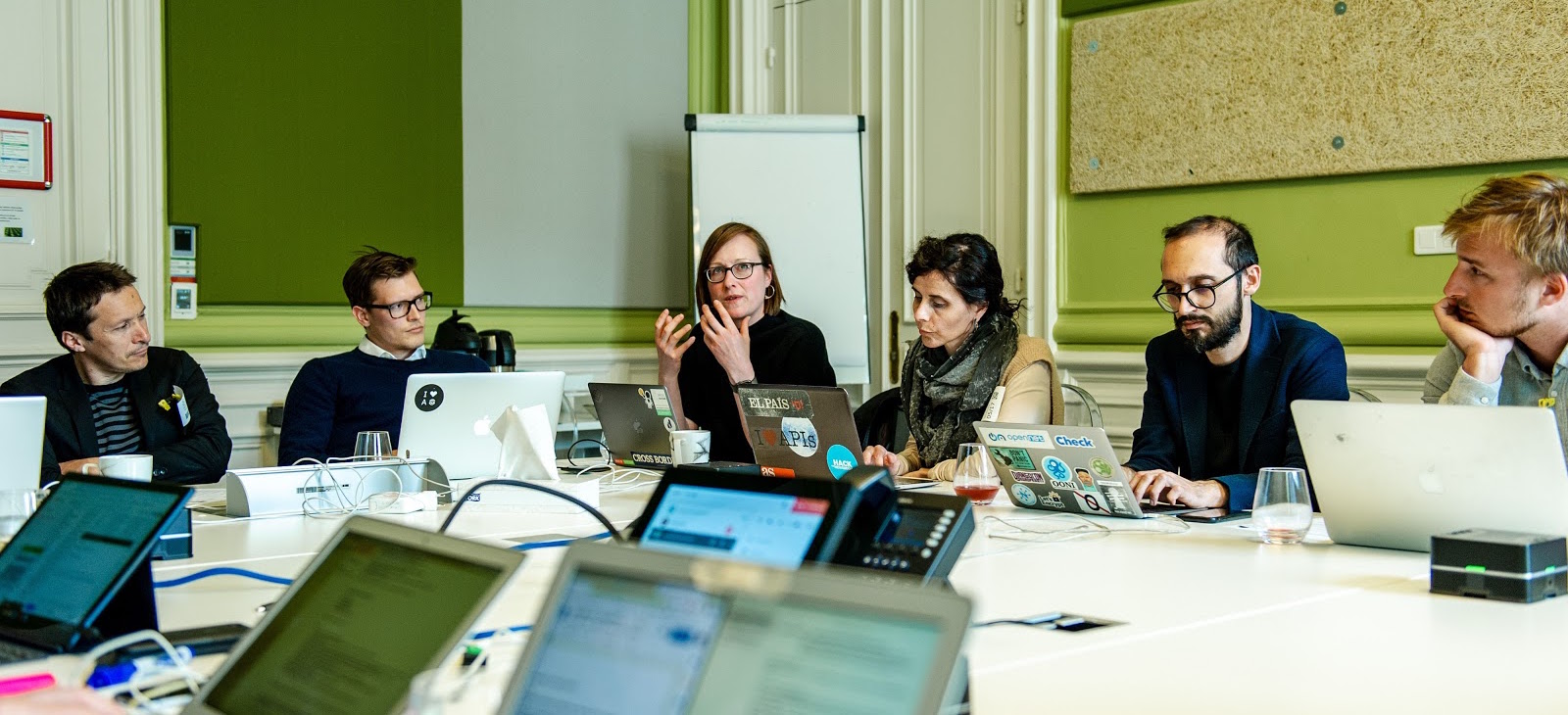How can the news media find investment to support the development of new AI technologies? Our recent JournalismAI global survey of news organisations showed that there are special challenges as well as opportunities for journalism in using AI, not least around R&D. This presentation by Polis director Charlie Beckett, given at an event at UK venture firm Hambro Perks, outlined a strategic approach that can tap into the new AI investment landscape. [Watch a video of the whole event here]

My talk tonight is based on my LSE research on news media and especially my latest project on AI and journalism but it resonates wider. Journalism, like many sectors, can be prone to siloed thinking and it’s important to get a broader perspective and fresh insights.
First we have to step back and see the big picture: we must understand the world is changing – partly because of tech. As is often said, “we tend to overestimate the effects of any technology in the short run but underestimate them in the long run.”
In 2018 I led the LSE Truth, Trust and Technology Commission investigation into the information crisis which examined how society should respond to the structural revolution in the way we get and share information. How we deal with the downsides like ‘fake news’ and create opportunities for enterprise and public value. The world is different: there are new platforms, new market and social trends and new global players such as China.
As citizens, governments and businesses we are struggling to find the structures to cope. This is creating gaps – and a need for investment in fresh thinking and new ways of doing things
The critical role of AI is why we carried out our 2019 JournalismAI Report New Powers and New Responsibilities, supported by the Google News Initiative, involving about 100 news organisations around the world.
We asked them what they are doing with AI, the challenges and opportunities and the future changes it will bring: it’s led to the creation of the LSE Polis global JournalismAI network. News organisations made it clear that AI is complex and its impact is going to vary widely, but that they expect it to have a significant impact in the next five years. This is what these key digital media practitioners told us.
They stressed that AI has an impact on all aspects of newsgathering, production and distribution. AI is replacing some functions at scale, for example through automation, delivering huge efficiencies.
They said it is also augmenting many other functions such as content creation or personalisation and that this is all making journalists and others in news organisations more efficient and effective. They said that the eventual result is uncertain but that AI is already changing the organisations and the marketplace in systematic ways.
Journalism has a weird culture and a particular mission – journalists like to think that it’s important for democracy for example. It is a relatively small sector that is struggling to find a business model – but the impacts it describe are recognisable in other sectors. All industries suffer from the problems we uncovered in the new industry: cultural barriers, knowledge deficits and investment limits regarding AI.
So, what is different and difficult about AI?
Our research showed that AI is different to the other waves of technological adoption such as the move online and the adoption of social media, for example.
It requires different investment strategies.
Data is the new key resource material – all sectors have special needs and sources for data. Journalism uses a lot of data and is skilled at understanding it but it doesn’t have enough and it doesn’t know how to handle it at scale.
Knowledge and skills will be a key resource issue. News media needs better AI understanding and competencies for management, augmented humans, specialists, and innovators. The news media has a lot of very smart people but not many AI specialists or people who can relate AI to journalism.
Building new tools for new services will be complex and difficult. Platforms are critical but there is a huge craving for tools that are relevant and effective. These take time and iterations to make them effective. Not just in their development but also for implementation.
R&D resources are spread unevenly. Again, the tech companies and the major corporations have this asset but the industry as a whole has great inequalities around research and needs to find new ways of developing products and systems.
So, how should the industry think about a strategy for AI investment?
Perhaps the most important part of our report looked at how organisations should develop an AI strategy. These were the key insights we got:
There is a need for investment in new roles and systems.
There is a need for investment in ‘collaboration’ with other organisations: other media enterprises or universities, for example.
Tech companies and other platforms will be the major players in AI technology and that relationship is key.
But a big message was the opportunity for all sorts of intermediaries such as start-ups who can help develop tools or systems.
A good example of this was a live experiment carried out in Finland where a research start-up worked with a major media company to develop a universal language model to help predict what kind of content would be most effective in getting users to subscribe to the news service.
Only VCs who are focused in on the unique character of AI and who understand the sector they are targeting can deliver the kind of extra innovation that all sectors require.
AI is a key priority – it won’t ‘save’ the news media alone, but it will be critical. Like every industry, we will be living in a data-driven, algorithmically shaped world and we need to have fresh thinking about what we invest in and who we do it with.
This article by Prof Charlie Beckett, Director of Polis, the LSE’s journalism think-tank, and director of the JournalismAI project at LSE. Thanks to Matilde Giglio, Principal at Hambro Perks for organising this event. This is her article about what she looks for when she’s investing in an AI-driven startup. You can watch a video of this event by clicking here
Sign up for our monthly newsletter to receive updates from the JournalismAI team.








